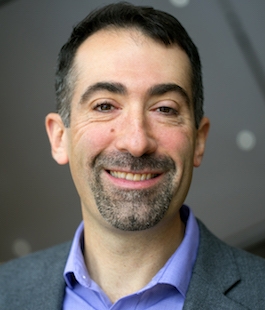
Pharmaceutical Sciences
Peter Tessier
Albert M. Mattocks Professor of Pharmaceutical Sciences, College of Pharmacy, and Professor of Chemical Engineering, College of Engineering
North Campus Research Complex
2800 Plymouth Rd
Ann Arbor, MI 48109-2800
B010-A179 NCRC
Role Overview and Bio
Education
Ph.D. Chemical Engineering, University of Delaware, 2003
B.S. Chemical Engineering, University of Maine, 1998
Professional Experience
Albert M. Mattocks (Endowed) Professor of Pharmaceutical Sciences and Chemical Engineering
Departments of Chemical Engineering and Pharmaceutical Sciences (equal appointments) and Biointerfaces Institute
University of Michigan, Ann Arbor, MI, 2017-present
Richard Baruch M.D. Career Development (Endowed) Professor
Department of Chemical & Biological Engineering
Rensselaer Polytechnic Institute, Troy, NY, 2016-2017
Richard Baruch M.D. Career Development (Endowed) Associate Professor
Department of Chemical & Biological Engineering
Rensselaer Polytechnic Institute, Troy, NY, 2014-2016
Alexander von Humboldt Fellow
Max Planck Institute of Biochemistry
Martinsried, Germany, 2014-2015
Associate Professor
Department of Chemical & Biological Engineering
Rensselaer Polytechnic Institute, Troy, NY, 2013-2016
Assistant Professor
Department of Chemical & Biological Engineering
Rensselaer Polytechnic Institute, Troy, NY, 2007-2013
American Cancer Society Postdoctoral Fellow
Whitehead Institute for Biomedical Research (MIT), Cambridge, MA, 2003-2007
Advisor: Susan Lindquist
Research Interests
-
The Tessier lab aims to develop best-in-class therapeutic antibodies and apply them to address multiple key biomedical challenges:
1. Conformational antibodies that selectively recognize protein aggregates for detecting and treating neurodegenerative disorders
2. Brain-targeted bispecific antibodies for detecting and treating neurological disorders
3. Agonist antibodies that activate T cells for treating cancer
4. Neutralizing antibodies for treating COVID-19 and other infectious diseases
5. Potent antibody-drug conjugates for treating cancer -
To accomplish this, we develop next-generation technologies for designing, discovering, engineering, characterizing, formulating and delivering therapeutic antibodies. Our technology development efforts are focused in three main areas:
1. Protein engineering and directed evolution
2. Biomolecular screening and high-throughput characterization
3. Machine learning and computational predictions -
Our interdisciplinary research program uses experimental and computational approaches for generating new fundamental insights into protein structure and function, molecular origins of protein-protein interactions, and molecular determinants of key antibody properties (stability, solubility, specificity and affinity). Our development of novel high-throughput screening and machine learning methods is focused on discovering therapeutic antibody candidates with drug-like properties.
Awards
-
1998 Co-Valedictorian, University of Maine, University of Maine
-
1999 NASA Graduate Fellowship, NASA
-
2004 American Cancer Society Postdoctoral Fellowship, American Cancer Society
-
2010 Pew Scholar Award in Biomedical Sciences, Pew Charitable Trust
-
2010 National Science Foundation CAREER Award, NSF
-
2012 Allan P. Colburn Lectureship, University of Delaware
-
2012 Rensselaer School of Engineering Research Excellence Award, Rensselaer School of Engineering
-
2012 Rensselaer Early Career Award, Rensselaer Polytechnic Institute
-
2013 Rensselaer School of Engineering Teaching Excellence Award, Rensselaer School of Engineering
-
2014 Rensselaer Dept. of Chemical & Biological Engineering Teaching Award, Rensselaer Dept. of Chemical & Biological Engineering
-
2014 Alexander von Humboldt Fellowship for Experienced Researchers, Alexander von Humboldt Foundation
-
2014 Young Scientist Award, World Economic Forum, Tianjin, China
-
2015 Young Investigator Award, Division of Biochemical Technology, American Chemical Society
-
2015 Invited Participant, USA National Academy of Engineering Frontiers of Engineering Symposium
-
2016 Young Investigator Award, Biochemical Engineering Journal, Biochemical Engineering Journal
-
2016 Young Investigator Award, Biochemical Engineering Journal, Dublin, Ireland
-
2018 Fellow, American Institute for Medical and Biological Engineering
-
2023 2023 Phi Delta Chi Faculty Appreciation Award , Phi Delta Chi (COP)
Selected Publications
Starr, C.G., Makowski, E.K., Wu, L., Berg, B., Kingsbury, J.S., Gokarn, Y.R., Tessier, P.M., “Ultra-dilute measurements of self-association for the identification of antibodies with favorable high concentration solution properties”, Mol Pharm, 18, 2744 (2021). [link]
Zupancic, J.M., Desai, A.A., Schardt, J.S., Pornnoppadol, G., Makowski, E.M., Smith, M.D., Kennedy, A.A., Barbosa, M.G.M, Cascalho, M., Lanigan, T.M., Tai, A.W., Tessier, P.M., “Rapid directed evolution of potent neutralizing nanobodies against SARS-CoV-2 using CDR-swapping mutagenesis”, Cell Chem Biol, 28, 1 (2021). [link]
Desai, A.A., Smith, M.D., Zheng, Y., Makowski, E.K., Gerson, J.E., Ionescu, E., Starr, C.G., Zupancic, J.M., Moore, S.J., Sutter, A.B., Ivanova, M.I., Murphy, G.G., Paulson, H.L., Tessier, P.M., “Rational affinity maturation of anti-amyloid antibodies with high conformational and sequence specificity”, J Biol Chem, 296, 100508 (2021). [link]
Zhang, Y., Wu, L., Gupta, P., Desai, A.A., Smith, M.D., Rabia, L.A., Ludwig, S.D., Tessier, P.M.,“Physicochemical rules for identifying monoclonal antibodies with drug-like specificity”, Mol Pharm, 17, 7 (2020). [link]
Julian, M.C., Rabia, L.A., Desai, A.A., Arsiwala, A., Gerson, J.E., Paulson, H.L., Kane, R.S., Tessier, P.M.,“Nature-inspired design and evolution of anti-amyloid antibodies”, J Biol Chem, 294, 8438 (2019). [link]
Rabia, L.A. Zhang, Y., Ludwig, S.D., Julian, M.C., Tessier, P.M., “Net charge of the complementarity-determining regions is a key predictor of antibody specificity”, Protein Eng Des Sel, 31, 409 (2018). [link]
,
Julian, M.C., Li, L., Garde, S., Wilen, R., Tessier, P.M., “Efficient affinity maturation of antibody variable domains requires co-selection of compensatory mutations to maintain thermodynamic stability”, Sci Rep, 7, 45259 (2017). [link]
,
Wu, J, Schultz, J.S., Weldon, C.L., Sule, S.V., Chai, Q., Dickinson, C.D., Tessier, P.M., “Discovery of highly soluble antibodies prior to purification using affinity-capture self-interaction nanoparticle spectroscopy”, Protein Eng Des Sel, 28, 403 (2015). [link]
,
Sule, S.V., Dickinson, C.G., Lu, J., Chow, C.-K., Tessier, P.M., “Rapid analysis of antibody self-association in complex mixtures using immunogold conjugates”, Mol Pharm, 10, 1322 (2013). [link]
,
Perchiacca, J.M., Ladiwala, A.R.A., Bhattacharya, M., Tessier, P.M., “Aggregation-resistant domain antibodies engineered with charged mutations near the edges of the complementarity-determining regions”, Protein Eng Des Sel, 12, 591 (2012). [link]
,
Perchiacca, J.M., Ladiwala, A.R.A, Bhattacharya, M.B., Tessier, P.M., “Structure-based design of conformation- and sequence-specific antibodies against amyloid b“, P Natl Acad Sci U S A, 109, 84 (2012). [link]
,
Perchiacca, J.M., Bhattacharya, M., Tessier, P.M., “Mutational analysis of domain antibodies reveals aggregation hotspots within and near the complementarity determining regions”, Proteins, 79, 2637 (2011). [link]